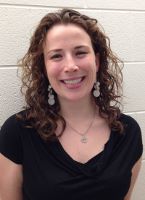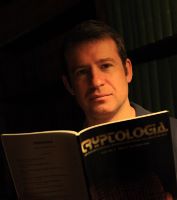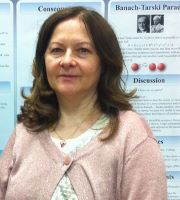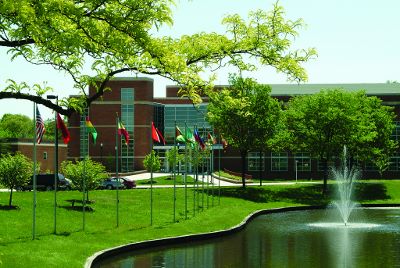
|
The Mathematical Association of America Maryland-District of Columbia-Virginia Section |
- Home
- History
- Main History Page
- Section History Document
- List of Past Officers
- Charter Members
- African-American Participation
- Stories from Section Members
- Section NExT Fellows
- Obituaries
- Smith Award Recipients
- Christensen Award Recipients
- Meritorious Service Award Recipients
- Undergraduate Award Winners
- Meeting Archive
- Past Meetings
- Talk Archive
- Old Section NExT Programs
- Newsletter Archive
- Meeting Minutes Archive
- Miscellaneous Documents
- Meetings
- Minutes
- Fall 2024 Executive
- Fall 2024 Membership
- Spring 2024 Executive
- Spring 2024 Membership
- Fall 2023 Executive
- Fall 2023 Membership
- Spring 2023 Executive
- Spring 2023 Membership
- Fall 2022 Executive
- Fall 2022 Membership
- Spring 2022 Executive
- Spring 2022 Membership
- Fall 2021 Executive
- Fall 2021 Membership
- Spring 2021 Executive
- Spring 2021 Membership
- Fall 2020 Executive
- Fall 2020 Membership
- Fall 2019 Executive
- Fall 2019 Membership
- Spring 2019 Executive
- Spring 2019 Membership
- Fall 2018 Executive
- Fall 2018 Membership
- Spring 2018 Executive
- Spring 2018 Membership
- Fall 2017 Executive
- Fall 2017 Membership
- Spring 2017 Executive
- Spring 2017 Membership
- Minutes Archive
- Newsletters
- Section NExT
- Awards
- Students
- Links
- Search
Fall 2014 Meeting at Bowie State University

Gwyneth WhieldonHood CollegeFriday workshop: Integrating Tablets into the Mathematics Classroom Abstract: Many college students have tablets, phones, and laptops (often all out in front of them in the same class), but those devices often function more as distractions than as learning tools. This doesn't have to be the case: from function visualization tools and electronic textbooks to effective note-taking software and group collaboration apps, there are plenty of ways to integrate mobile devices into the mathematics classroom in ways that avoid distractions, gimmicks, or time-wasting. Similarly, on the faculty side, there are apps that make it easier to create and distribute innovative course materials, or keep track of student involvement, questions and resources. This is hands-on workshop on how to use web or mobile-based apps in the math classroom, with a focus specifically on calculus, precalculus and linear algebra. Participants should bring their own device to the workshop, as only a limited quantities of iPads will be available as extras. Biographical Sketch: Gwyn Whieldon is an assistant professor at Hood College, working primarily in combinatorics and commutative algebra. Most of her work focuses on computational combinatorics and algebra, using computer exploration as a key tool. She has mentored several undergraduate researchers, and has co-authored three papers with her research students. As an instructor of the "Workshop Calculus" sequence at Hood, she is also very interested in how to encourage student use of technology as a tool to assist in problem solving, and developing best-practices for introducing students to these technologies and competencies. In her free time, she is a cyclist and a recreational trivia league player. 
Craig BauerYork College of PennsylvaniaBanquet Address: Unsolved: History's Greatest Ciphers Abstract: While developments in cryptanalysis (the art/science of cracking ciphers) have forced enciphering techniques to become more and more sophisticated, there remain scores of ciphers stretching back to antiquity that remain unsolved. These were created variously by professional cryptographers, amateurs, artists, killers, and victims. In some cases the identity of the author is also unknown. The talk covers many of these mysteries, along with some mathematics that provides a glimmer of hope for those seeking the solutions. These solutions could reveal the identity of a serial killer or spy, provide the exact location of buried treasure worth millions, expose a secret society, illuminate our understanding of ancient history, or even rewrite the history of science. Biographical Sketch: Craig Bauer is the author of Secret History: The Story of Cryptology, which was recognized by CHOICE as one of the Outstanding Academic Titles of 2013. He also serves as the editor-in-chief of Cryptologia, a quarterly journal devoted to all aspects of cryptology. He is passionate about both mathematics and its history and was the first mathematician to serve as a Scholar-in-Residence with the National Security Agency's Center for Cryptologic History. He is presently an associate professor of mathematics at York College of Pennsylvania. His degrees are from Franklin & Marshall (B.A.) and N. C. State (M.S. and Ph.D.). The research papers that he is most proud of are the ones he coauthored with undergrads. He enjoys giving off-campus lectures to math enthusiasts, as well as general audiences. His non-mathematical interests include comic books and horror novels and films. 
Valentina HarizanovThe George Washington UniversitySaturday Morning Address: Computable Mathematics Abstract: In 1936, Turing invented the Turing machine and established formal computability theory as a rigorous mathematical theory of algorithms. Computability theory paved the way for the creation of the modern programmable computer. The main thrust of the field is to understand the power and limitations on algorithmic computation without regard for the physical implementation. Interaction of computability theory with algebra, as well as other areas of mathematics, has resulted in computable structure theory and, more generally, computable mathematics, a very active research area in the last few decades. The talk will focus on the history and significance of computability theoretic ideas and methods in mathematics, including undecidability problems, complexity of truth, and the Gödel incompleteness theorem. We will also discuss algorithms with oracle information, Turing degrees, and some of our recent results. Biographical Sketch: Valentina Harizanov, Professor of Mathematics at the George Washington University, obtained her PhD at the University of Wisconsin, Madison. Harizanov is internationally recognized for her research in mathematical logic, particularly in computable mathematics. She has been teaching a wide range of undergraduate and graduate courses at GW, graduated 8 PhD mathematics students and is now advising three more. Harizanov has published about 60 research papers in peer-reviewed journals. She co-edited and co-authored a volume, Philosophy and Mathematics of Algorithmic Learning Theory, published by Springer, authored a chapter in the Handbook of Recursive Mathematics published by Elsevier, and co-authored a chapter in Turing's Legacy volume published this year by the Cambridge University Press. She is currently working on a volume on logic and algebraic structure in quantum computing. Harizanov has given over 110 invited lectures at conferences and universities in the United States, Canada, Europe, Israel, and Russia. Her research has been supported by the National Science Foundation, including individual research grants, conference grants, and collaborative grants for international research collaboration. 
Larry WashingtonUniversity of MarylandSaturday Afternoon Address: Cannonballs, Triangles, and Secrets: An introduction to elliptic curve cryptography Abstract: Elliptic curves have been around for centuries, but recently they have become very important in cryptography. I'll start with a light introduction to elliptic curves and then discuss some recent cryptographic applications. Biographical Sketch: Larry Washington received his PhD at Princeton in 1974, and has taught at the University of Maryland since 1977. His research is in number theory and cryptography and he has written, or co-written, four books on these topics. He plays an active role in education at all levels and is currently the Graduate Director of the Mathematics Department at UMD. He has directed 24 PhD theses and 11 Masters theses and has also directed approximately 30 high school and undergraduate research projects, several of which have won national awards. He gives frequent talks in area high schools and has worked closely with local math teams. Since its inception in 1979, he has been on the team that designs and directs the University of Maryland High School Mathematics Competition, with more than two thousand students throughout Maryland competing annually. In 2009 he won the John M. Smith Award for Distinguished College or University Teaching. |
Copyright © 2014 - The Mathematical Association of America
Please send comments, suggestions, or corrections for this page to Brian Heinold at heinold@msmary.edu
Last Modified: 11/11/2014 - 05:18pm
 The Fall 2014 Meeting of the MD-DC-VA section of the MAA
was held at
The Fall 2014 Meeting of the MD-DC-VA section of the MAA
was held at